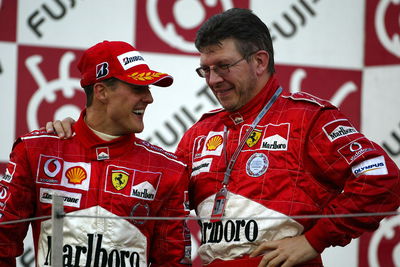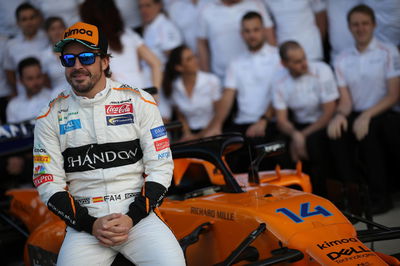Schumacher's manager on how he redefined F1 standards
Seven-time world champion Michael Schumacher redefined the standards set in Formula 1, according to his manager Sabine Kehm.
Schumacher claimed two world championships at Benetton before a move to Ferrari heralded one of the greatest periods of success in the sport, with the Ferrari-Schumacher collaboration going on to win six successive constructors’ titles and five straight drivers’ championships between 1999-2004.

Seven-time world champion Michael Schumacher redefined the standards set in Formula 1, according to his manager Sabine Kehm.
Schumacher claimed two world championships at Benetton before a move to Ferrari heralded one of the greatest periods of success in the sport, with the Ferrari-Schumacher collaboration going on to win six successive constructors’ titles and five straight drivers’ championships between 1999-2004.
But Kehm, a former F1 journalist who worked as Schumacher’s press officer during his halcyon Ferrari days and still manages his affairs, believes the German’s lasting legacy on the sport goes beyond simply his on-track achievements.
“I think he has been the epitome of the sport,” Kehm said in an interview with F1’s official podcast, Beyond The Grid.
“He’s defined the way that people would nowadays say how a Formula 1 driver needs to be.
“That’s the driving itself on the track and the definition of how you work with the team and how important it is to really be inside and really understand everything to find the right direction and find the right questions and the answers to those questions.
“Fitness levels, I think he also defined that. He would train every day but he loved it. Young drivers are all super fit and I think he also defined the role model of a modern F1 driver.
“For me Formula 1 is the pinnacle of motorsports, it is the playing field of the gladiators of our modern times and I think Michael has been clearly the leading gladiator for so many years.”
Kehm also credits Schumacher for prompting a rise in popularity in F1 and winning over new fans as a result of his journey in the sport.
“I think he’s given two things to the sport,” Kehm explained. “He was the star and everything was centred around him. He was the story if he had lost a race and he was the story if he had won it.
“At the same time I think a lot of people understood that there was a second part of Michael, and clearly he did not want them to be so close to this other persona.
“I think he really brought F1 to a level, it was coming into the living rooms of average people, whereas before that was kind of seen as a playing field for people who are seen as a little bit crazy - it’s a cool sport but you cannot really take it serious.
“So he kind of brought the sport into their living rooms.”












